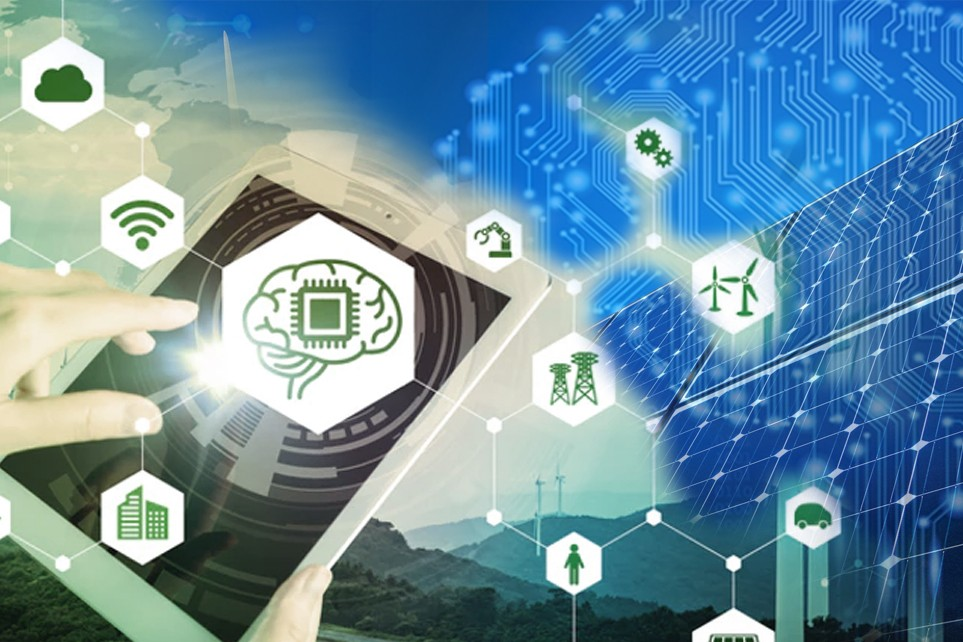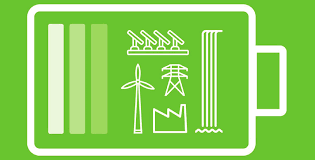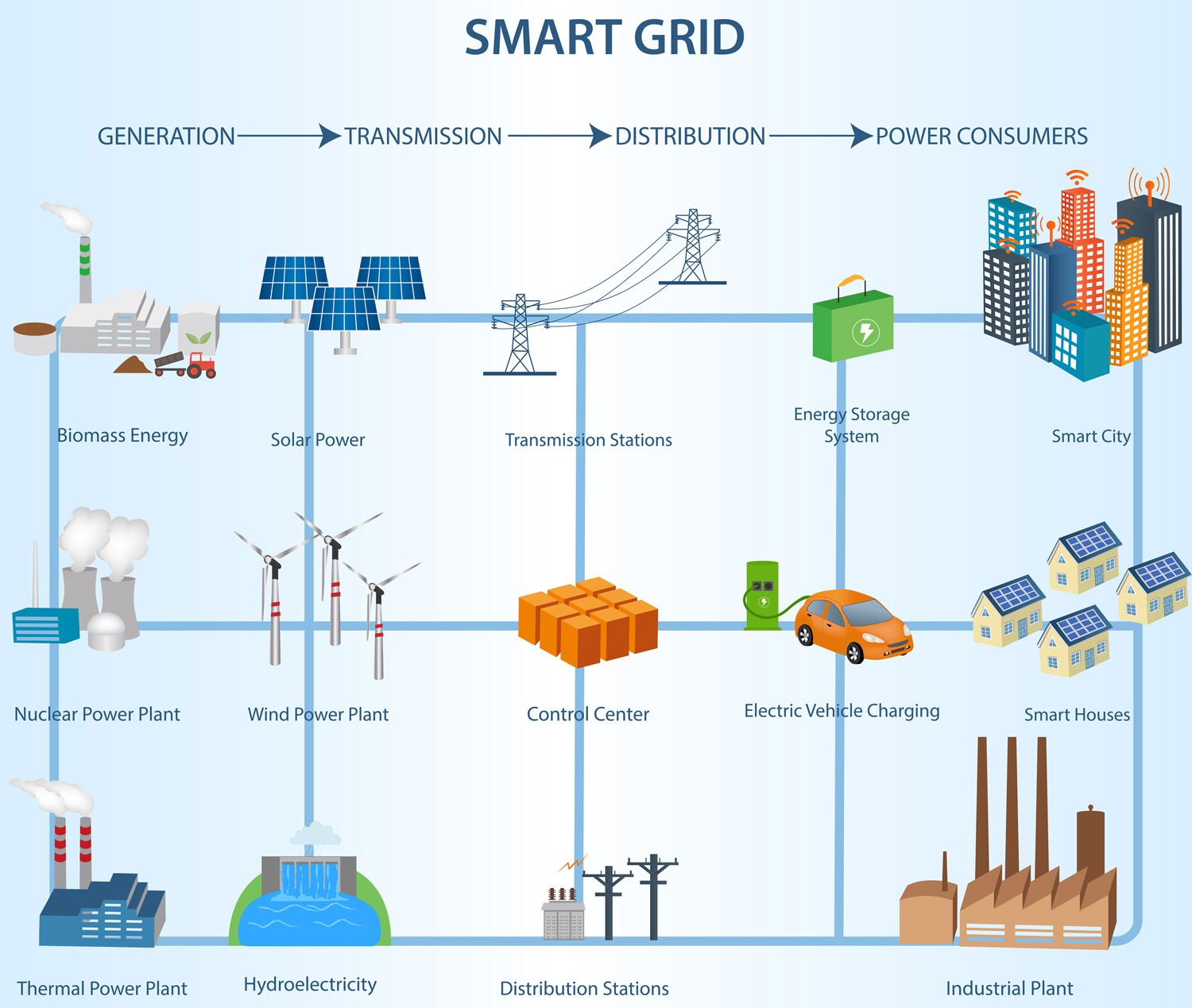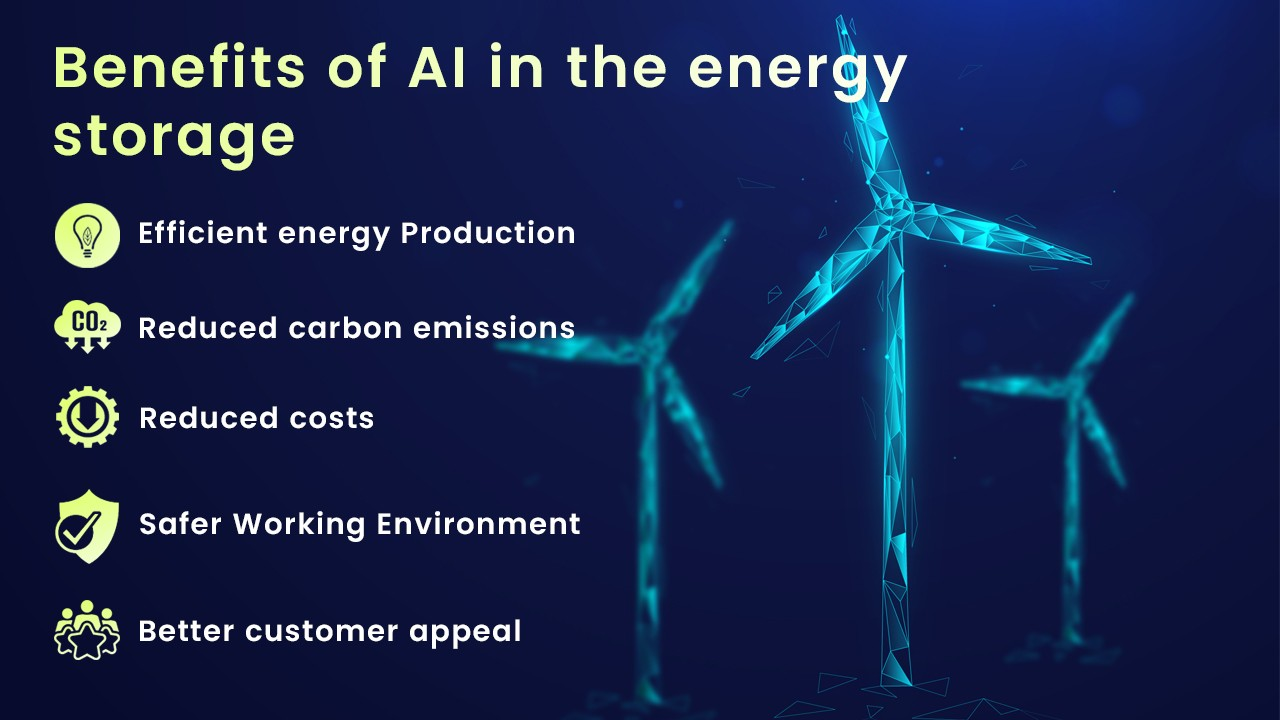In the realm of energy management systems, the integration of Artificial Intelligence (AI) represents a significant leap in innovation and efficiency, encompassing microgrid battery storage, minigrid battery storage, and battery energy storage systems. These versatile tools not only optimize energy storage and distribution but also enhance grid stability, reduce costs, promote environmental sustainability, and offer an enhanced user experience. In this comprehensive exploration, we delve into the multifaceted and vital functions of these AI-enhanced systems, understanding their significance as we move towards a cleaner and more sustainable energy future.
 Components of Energy Management Systems:
Components of Energy Management Systems:
AI Algorithms: In energy management systems, AI algorithms play a pivotal role, serving as the engine for real-time analysis, adaptation to changing conditions, and data-driven decision-making. They are responsible for intelligently managing these energy resources, including microgrid battery storage, minigrid battery storage, and battery energy storage systems.
Monitoring and Control Systems: These systems provide real-time oversight of microgrid battery storage, minigrid battery storage, and battery energy storage systems, enabling seamless optimization and intelligent decision-making based on data-driven insights.
Battery Management: AI's role in battery mangement, especially in microgrid battery storage, minigrid battery storage, and battery energy storage systems, is critical. It enhances battery performance, ensures safe operation, and extends battery lifespan, directly impacting the reliability and longevity of these systems.
Virtual Power Plants: These systems are emblematic of the flexibility provided by AI, aggregating distributed energy resources, including microgrid battery storage, minigrid battery storage, and battery energy storage systems, to create virtual power plants. This aggregation stabilizes the grid and facilitates efficient responses to grid demands.
Integration with Smart Homes and Cities: AI's strength lies not only in optimizing energy consumption for microgrid battery storage, minigrid battery storage, and battery energy storage systems but also in significantly reducing the cost and environmental impact of these systems.
Expanded Functions of Energy Storage Systems:
Energy Forecasting and Scheduling for Microgrid Battery Storage, Minigrid Battery Storage, and Battery Energy Storage Systems: AI's predictive capabilities are employed to forecast energy demand and generation patterns for these systems, allowing them to proactively schedule energy storage and distribution, reducing waste and ensuring efficient utilization of energy resources. Imagine a microgrid battery storage system that adjusts its production schedule based on AI-predicted energy availability, optimizing operations and costs.
Load Optimization: AI not only optimizes energy storage for microgrid battery storage, minigrid battery storage, and battery energy storage systems but also optimizes energy load distribution. Prioritizing the use of these systems, considering factors like demand, time, and cost, can reduce energy bills and alleviate grid burdens.
Fault Detection and Prevention: AI algorithms act as vigilant guardians of the health of devices within microgrid battery storage, minigrid battery storage, and battery energy storage systems. They can identify anomalies and potential faults before they lead to costly breakdowns, a disruptive tool for industries relying on these systems, such as manufacturing.
Grid Stability and Blackout Mitigation: Grid failures are inevitable, but their impact can be mitigated. AI-controlled microgrid battery storage systems, minigrid battery storage systems, and battery energy storage systems automatically switch to backup power, ensuring uninterrupted operation of critical facilities like hospitals and data centers. This is a key aspect of improving grid stability.
Demand Response Management: Participating in demand response programs is not just about grid stability; it's also a source of financial incentives. AI-enabled microgrid battery storage systems, minigrid battery storage systems, and battery energy storage systems can adjust energy consumption based on signals from grid operators. Businesses and individuals can reduce energy consumption during peak periods and reap the benefits.
Optimal Energy Source Selection: AI doesn't just work alongside microgrid battery storage, minigrid battery storage, and battery energy storage systems; it can also evaluate different energy sources, such as solar, wind, and grid electricity, to determine the most cost-effective and environmentally friendly source to draw from at any given time. This dynamic source selection can lower costs and reduce environmental impact.
Energy Trading and Market Participation: In regions where energy trading is allowed, AI-enabled microgrid battery storage systems, minigrid battery storage systems, and battery energy storage systems can autonomously participate in energy markets. They can buy and sell surplus energy, potentially generating income for businesses and individuals with excess energy.
Reducing Environmental Impact: AI-enhanced microgrid battery storage, minigrid battery storage, and battery energy storage systems significantly reduce carbon emissions by optimizing energy consumption patterns. By reducing reliance on fossil fuels during peak periods, it contributes to environmental sustainability.
Enhancing User Experience: For end-users, AI translates into an enhanced experience. Systems equipped with intuitive interfaces and mobile applications empower users with monitoring and control capabilities. They offer insights and recommendations on energy savings, making residents more informed and efficient energy consumers.
Integration with Smart Appliances: AI-driven systems communicate with smart appliances, allowing them to adjust their operations based on energy availability, prices, and user preferences. This further enhances energy efficiency and provides a seamless, automated energy management experience for these systems.
Examples of AI-Enhanced Energy Management:
To illustrate the real-world impact of AI-enhanced energy management, let's consider some examples:
Smart Grids: AI can optimize energy allocation within smart grids for microgrid battery storage and minigrid battery storage systems. For instance, it can detect high-demand areas and redirect energy flows to meet these demands, ensuring a continuous supply and preventing overloads.
Electric Vehicles: In the electric vehicle domain, AI can manage the charging process, ensuring that vehicles are charged during periods of low energy demand or when renewable energy sources are abundant.
Conclusion:
In the domain of energy management systems, the integration of AI brings unprecedented innovation and efficiency to microgrid battery storage, minigrid battery storage, and battery energy storage systems. The multifunctionality of these systems, including energy forecasting, load optimization, fault detection, grid stability, and demand response management, will propel us towards a cleaner and more sustainable energy future. Additionally, reducing environmental impact, enhancing user experiences, and integrating with smart appliances will further drive the development of these systems. As a critical component of energy management, renewable energy storage systems are a key factor in achieving energy sustainability, with AI providing a promising future for their evolution.
If you have further questions or need more information on energy management systems, renewable energy storage systems, AI integration, or other related topics,Feel free to reach out to us, our experts are here to assist you every step of the way. We are dedicated to providing you with more insights and advice to help you better understand and apply these crucial technologies. In the ever-evolving energy landscape, we will continue to innovate to meet your needs and drive the future of renewable energy and energy management systems.
If you're interested in learning more about our solar energy storage offerings,You can get an idea for contacting our sales person to know more detail.we encourage you to explore our product line. We offer a range of panels and battery that are designed for various applications and budgets, so you're sure to find the right solution for your needs.
Website:www.fgreenpv.com
Email:Info@fgreenpv.com
WhatsApp:+86 17311228539
Post time: Oct-28-2023














